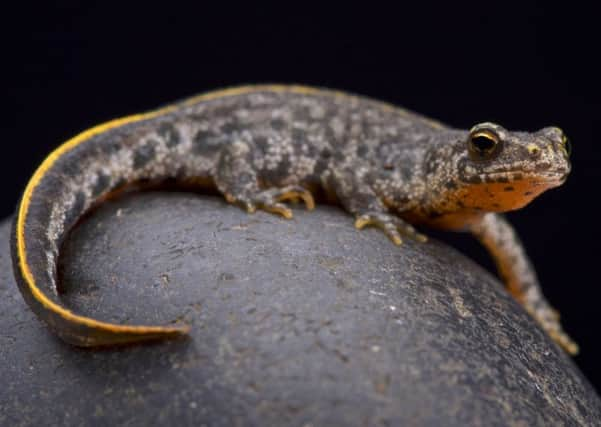Fordyce Maxwell: Loss of nature isn't all farming's fault
This article contains affiliate links. We may earn a small commission on items purchased through this article, but that does not affect our editorial judgement.


Most of us, say 99 per cent of the population in and out of the countryside, wouldn’t recognise the above species. Or a whole lot more of the 2,000 or so species of flowering plants found in Scotland, along with about 1,200 species of fungi, 1,500 or so lichens and more than 1,000 mosses and liverworts.
That’s a lot of species with differences noticeable only to experts. Not recognising them doesn’t make the rest of us bad people because we usually have a lot more to worry about.
Advertisement
Hide AdAdvertisement
Hide AdThis gap between expert knowledge and those of us who think “That’s moss” or “There’s a mushroom” also asks the question of what the effect would be on most of us if threatened plant, bird and animal species, disappeared?
That question was asked again last week when a report called State of Nature, compiled by 53 wildlife groups and co-ordinated by the Royal Society for Protection of Birds, was published. Introducing it, Sir David Attenborough gave his own answer to the question of does it matter when he said: “Escalating pressures such as climate change and modern land management mean that we continue to lose the precious wildlife that enriches our lives and is essential to the health and wellbeing of those who live in the UK.”
Well, up to a point, and I write that as one of Sir David’s millions of fans. As a non-expert I think that tens of thousands of species of plants, animals, birds and insects have disappeared over the millennia and others have evolved that can cope with changing conditions.
In the past half century or so, certainly since the publication of the emotional polemic Silent Spring in the 1960s, a difference has been that farmers and other land users have been blamed unequivocally for much of the decline and disappearances.
Last week’s report is the latest in a long line, claiming as it does that more than half of 8,000 species assessed have declined in the past 40 years and that changes in farming methods have a great deal to do with that.
The report also claims that all other large European countries have a better record than Britain in preserving threatened species.
The compilers say that farming change is not the only cause for, say, the hedgehog population halving in the past ten years or the virtual disappearance of wildflower meadows in Britain since the 1940s.
But it does claim that significant and ongoing changes in agricultural practices are having the biggest single im pact because of increased use of pesticides and fertilisers, destruction of habitats, the disappearance of traditional mixed farms and changes to sowing and harvesting patterns. Some of that is correct. It is part of the never-ending argument about whether farmers at the sharp end of trying to make a living by producing food should be deeply concerned about the effect of their methods on wild plants, birds and animals.
Advertisement
Hide AdAdvertisement
Hide AdBut farmers’ organisations were quick to point out that over-stating the argument against their industry is not new as wildlife organisations try hard to divert farming subsidies from food production to what they see as better care and protection of the environment.
Guy Smith, the articulate and thoughtful – not necessarily complementary attributes – vice president of the NFU of England and Wales said of the report: “We have to keep a focus on the level of food production in the UK” – now barely 60 per cent self sufficient – “because if we re-wild vast tracts of British farmland we will have to import even more food. Would that come from countries that are more wildlife-friendly – such as Indonesia or Brazil?”
He was being ironic. Anyone who has travelled will also find it hard to believe that British farming’s attitude to conservation is in the bottom 10 per cent of 218 countries.
We might be losing species, but that is a feature of world history over millions of years. It’s not all the fault of modern farming.